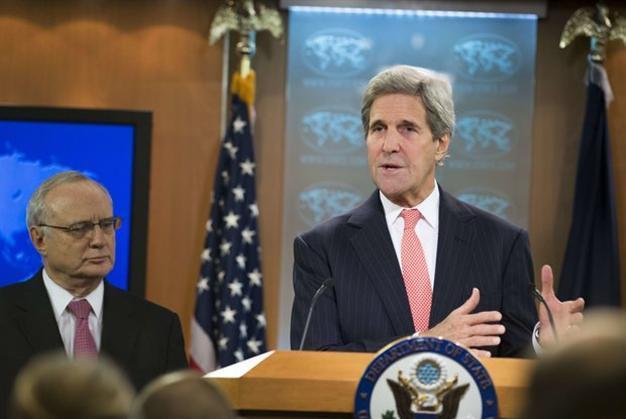Anti-Semitism on rise in Turkey: US report
WASHINGTON

AFP photo
Anti-Semitism has risen in recent years in Turkey, a U.S. State Department report has said, adding that the Turkish government has continued to discriminate against its non-Sunni Muslim citizens.
“Elected officials engaged in anti-Semitic rhetoric,” said the annual International Religious Freedom Report for 2014 released on Oct. 14 by the U.S. Department of State, adding that during Israel’s ground operation in Gaza in July 2014 then-Prime Minister Recep Tayyip Erdoğan and several senior government officials publicly made anti-Semitic statements as well as generalized statements against Jews.
“Those who condemn Hitler – day and night – have surpassed Hitler in barbarism,” the report presented by U.S. Secretary of State John Kerry, quoted Erdoğan as saying, recalling his statements made on Jul. 19, 2014 when protests over the operation were ongoing.
The report said there was a sharp increase in anti-Semitic protests and statements in mass and social media during the Gaza conflict, accompanied by threats of violence against Turkey’s Jews.
The Turkish government, the report also stated, has continued to discriminate against Alevi Muslims, including by refusing to recognize their places of worship or exempt their children from compulsory Sunni Islamic instruction. It particularly cited the Turkish constitution, which theoretically defines Turkey as a secular state, provides for freedom of religion, conscience, religious belief, conviction, expression, and worship, and prohibits discrimination based on religious grounds.
“The government continued not to recognize Alevi houses of worship (cemevis) and Alevis continued to experience difficulty obtaining exemptions from mandatory religion classes,” the report added.
The report said the government continued to consider Alevism a heterodox Muslim sect and did not financially support religious worship for Alevis, citing Turkey’s Directorate of Religious Affairs as the top body coordinating religious matters, whose mandate is to promote Sunni Islam in the country.
Given the rights of non-Muslim minorities limited by the Turkish government, the report said the state continued to provide training for Sunni Muslim clerics while restricting other religious groups from training clerics inside the country, citing requirements imposed by the Higher Education Board.
“The Greek Orthodox and Armenian Orthodox Patriarchates were unable to train their clerics in monastic seminaries within the country,” it added.
